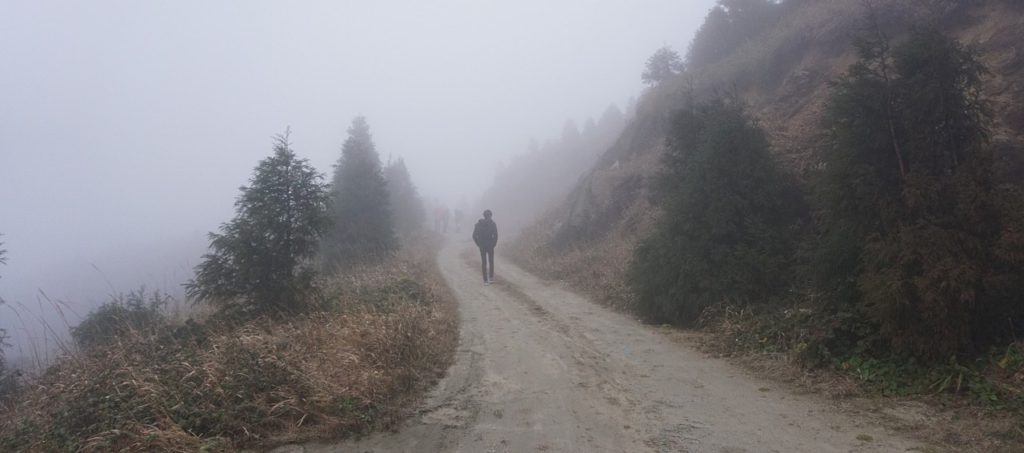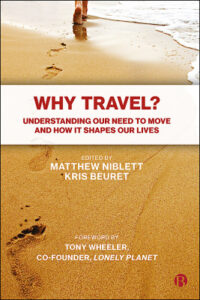Loneliness and Travel
Loneliness has been declared “the public health challenge of our age,” and is claimed by the Royal College of GPs to be as damaging to our health as long-term illness or smoking 15 cigarettes a day.[1] A recent study by The Co-op and the British Red Cross found that in the UK more than 9 million people are either always or often lonely;[2] and according to the Office of National Statistics, the UK is by some measures the “loneliness capital of Europe.”[3] Following recommendations from the Jo Cox Commission on Loneliness, the UK Government has recently appointed a ministerial lead for loneliness, to direct action across government on tackling the problem.[4]
Although social isolation can affect people of any age,[5] the problem can be particularly acute amongst more elderly people for a variety of reasons including bereavement, retirement and decreased mobility caused by infirmity, poverty and ill health. Similarly, disabled people of all ages also report high levels of loneliness due, in part, to the difficulties they face in accessing transport and travel opportunities.[6] The importance of mobility in maintaining physical and mental health has been much researched, including the role of mobility in reducing feelings of isolation and loneliness.[7] In a recent policy briefing, the Mental Health Foundation and Age Scotland included investment in community transport as one of its key recommendations for reducing loneliness amongst older people in Scotland. The Community Transport Association (CTA) has been working hard to improve transport connectivity in rural areas (which often include a high proportion of elderly people). The CTA has been helping provide additional minibuses for isolated communities as a way of improving physical and mental wellbeing. As one member wrote “Lots of these people on these trips are disabled and wouldn’t get a chance to go anywhere without Community Transport.” According to research published in the journal Ageing and Society, bus travel plays an important role in reducing isolation for older city residents too. The study, carried out in London, found that the older person’s Freedom Pass (which allows free bus travel) “enabled access to health-related goods and services” alongside “less tangible benefits” such as “opportunities for meaningful social interaction; travelling as part of the ‘general public’ provided a sense of belonging and visibility in the public arena – a socially acceptable way of tackling chronic loneliness […] [and] a widely prized mechanism for participation in life in the city.”[8]
Travel, then, has a clear role in reducing social isolation; but in certain circumstances travel itself can generate feelings of loneliness and isolation, rather than a cure. The loneliness of the open road, or the long-distance business traveller sitting alone in a hotel bar, are such well-recognised travel tropes they have become clichés. Writing in the journal Environment and Planning, researchers Cohen and Gössling examined what they call the ‘darker side’ of hypermobility (frequent and long-distance travel). They found that loneliness can be one of a number of negative consequences of such travel for both the traveller themselves and the loved ones they leave behind, and that such loneliness can contribute to psychological disorders in ‘hypermobile’ travellers.[9] Numerous travel commentators have written tips for solo travellers, whether backpackers or business executives, on how to deal with the loneliness of travel. These range from ‘getting out there’ and interacting with people, no matter how cursory the interactions, to embracing the loneliness and seeing where it leads the mind.[10]
The idea that loneliness could be something of a blessing when travelling is one that appears across travel commentary. Travel blogger Ben Hancock advises that “Loneliness drives introspection, and can force you to look at a place from another angle.”[11] In a similar vein, journalist Robert Kaplan advises foreign correspondents, to “cultivate loneliness” in order to isolate themselves from the familiar and its constraints on their thinking. “The best writing,” Kaplan says, “literary or journalistic, occurs under the loneliest of circumstances, when a writer encounters the evidence firsthand without anyone of his social, economic, or professional group nearby to help him filter it, or otherwise condition his opinions.”[12] According to scholars of travel writing, a craving for solitude formed a central motivation for a number of explorers and adventurers of the 19th and 20th centuries, who found in this solitude an escape that made them feel free.[13]
Despite the sense of freedom that some may gain from being alone, for the majority of people loneliness is not a sought-after state, and social connections are an essential component of well being. Travel can play an important role in both enabling these social connections and also disrupting them. Recognising the nuanced relationship travel can have with our emotional and social lives is therefore an important part of better comprehending why people travel. The Independent Transport Commission (ITC) believes that understanding the motivations behind why people travel, including the social and psychological needs travel fulfills, will be critical if we are to make better decisions about travel at an individual and policy levels. To this end, the ITC has commissioned the Why Travel? Project, which aims to explore our motivations for travel from a broad range of perspectives in order to help us improve our decision making around human travel and transport. For more information on the project, including news and expert views, see www.whytravel.org
See also:
Health Benefits of Travel blog post
The Mind topic page
Sociological Insights topic page
Notes:
[1] https://www.mentalhealth.org.uk/publications/loneliness-public-health-challenge-our-time and http://www.rcgp.org.uk/about-us/news/2017/october/loneliness-can-be-as-bad-for-health-as-a-chronic-long-term-condition-says-gp-leader.aspx
[2] https://www.campaigntoendloneliness.org/the-facts-on-loneliness/
[3] https://www.telegraph.co.uk/lifestyle/wellbeing/10909524/Britain-the-loneliness-capital-of-Europe.html
[4] https://www.gov.uk/government/news/pm-commits-to-government-wide-drive-to-tackle-loneliness
[5] Indeed, the most recent research indicate young people may be least resilient to feelings of loneliness: https://www.bbc.co.uk/news/education-43711606
[6] https://www.scope.org.uk/press-releases/nearly-half-of-disabled-people-chronically-lonely
[7] for example see Gabriel Z. and Bowling A. 2004. Quality of life from the perspective of older people. Ageing & Society, 24, 5, 675–91.
[8] https://www.ncbi.nlm.nih.gov/pmc/articles/PMC3903102/#ref15
[9] http://epubs.surrey.ac.uk/807387/21/Cohen%20%26%20Gossling%202015%20EPA.pdf
[10] For example see https://www.huffingtonpost.com/caroline-burns/tips-for-traveling-solo_b_8303000.html?guccounter=1
[11] http://www.travelblogs.com/articles/dealing-with-loneliness-on-the-road-part-1
[12] https://vbitaly.files.wordpress.com/2013/05/cjr-kaplan-on-travel-writing.pdf
[13] See for example Ghose, Indira, Manfred Pfister, ‘Still Going Strong: The Loneliness of the Long-Distance Traveller in Victorian and Modern Travel Writing’ (149-164) Journal for the study of British Cultures, Vol 3 (no.2) 1996



